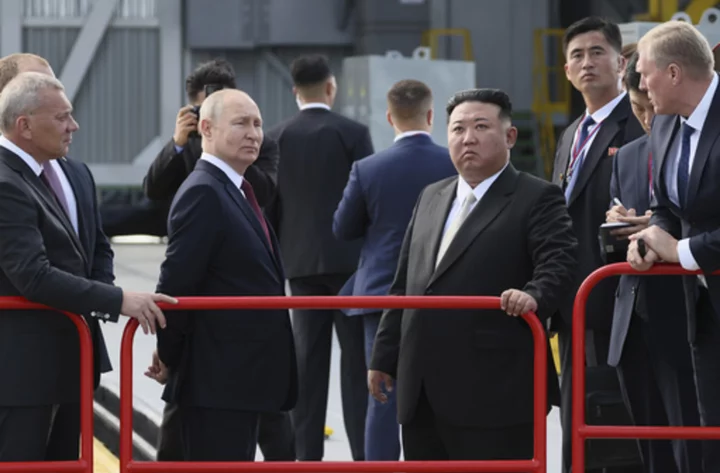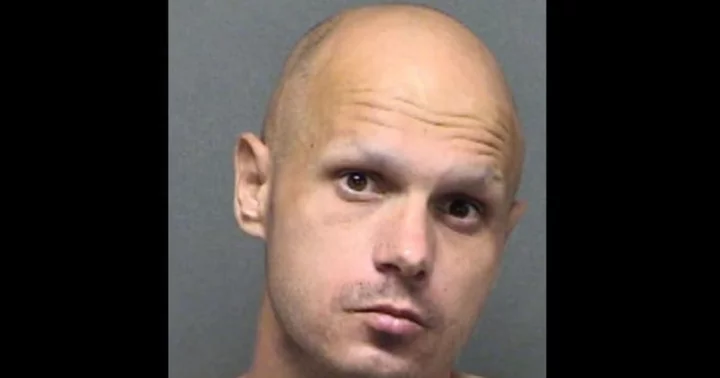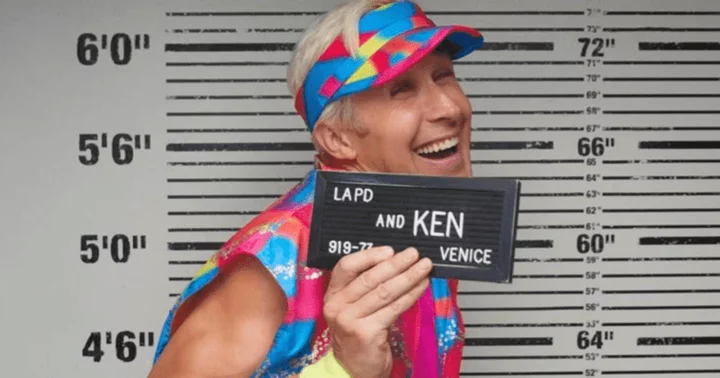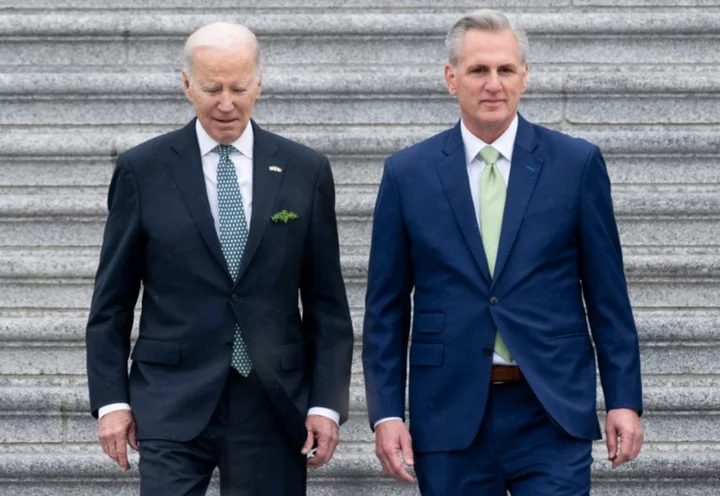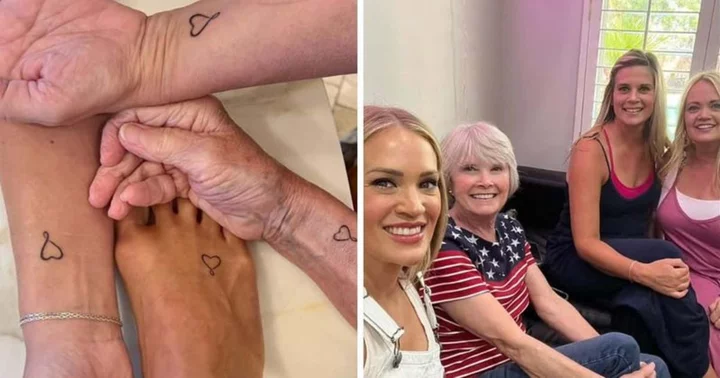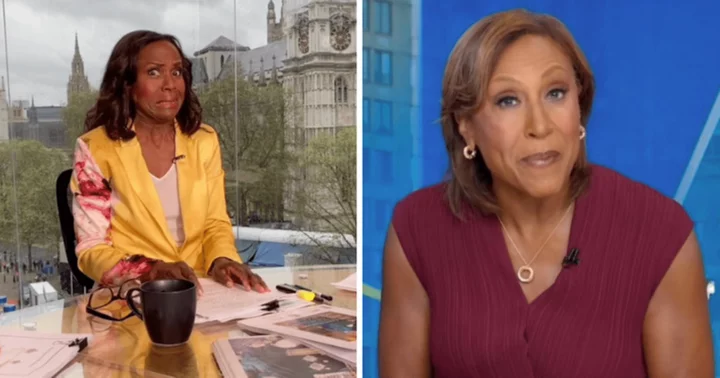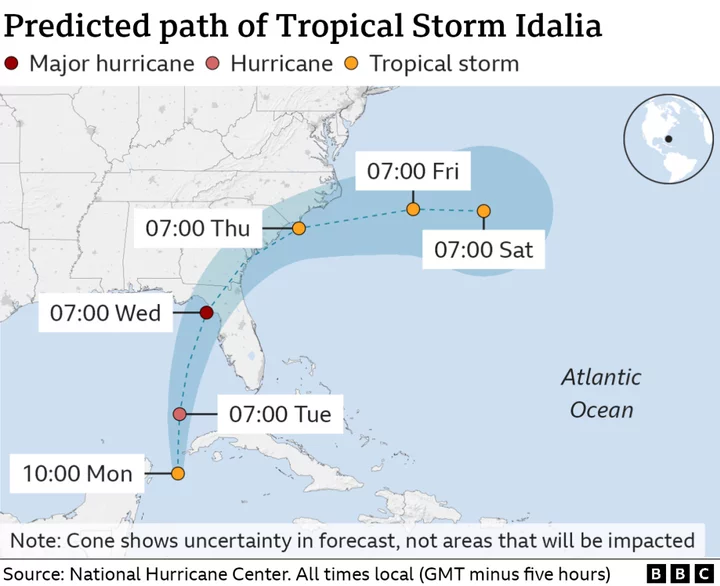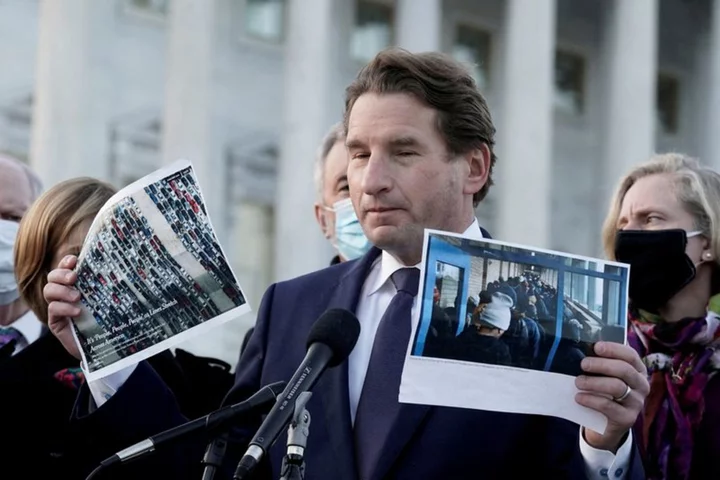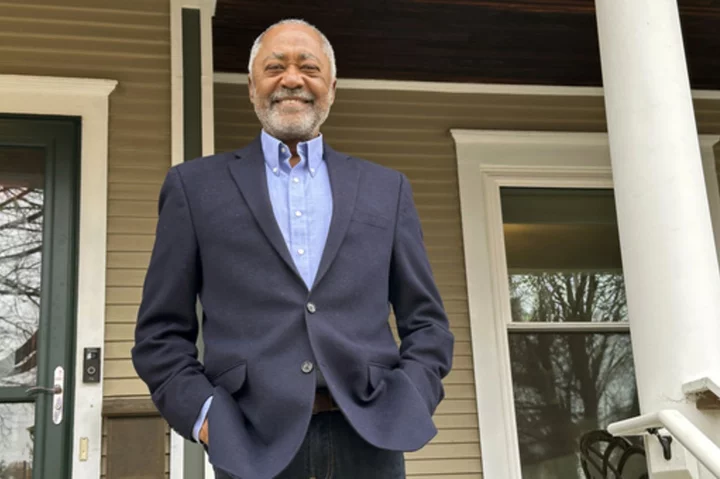OSLO, Norway (AP) — North Korea may be able to boost Russia's supply of artillery munitions for the war in Ukraine, but that is not likely to make a big difference, the top American military officer said as he arrived in Norway for NATO meetings that began Saturday and will focus in part on the conflict.
U.S. Army Gen. Mark Milley, chairman of the Joint Chiefs of Staff, said the recent meeting in Russia between North Korean leader Kim Jong Un and Russian President Vladimir Putin will probably lead North Korea to provide Soviet-era 152 mm artillery rounds to Moscow. But he said it was not yet clear how many or how soon.
“Would it have a huge difference? I’m skeptical of that,” Milley told reporters traveling with him. He said that while he does not want to play down the weapons assistance too much, "I doubt that it would be decisive.”
Foreign governments and experts have speculated that Kim will likely supply ammunition to Russia in exchange for receiving advanced weapons or technology from Russia.
Milley and the other defense chiefs from NATO countries are meeting at the Holmenkollen ski area on the edge of Oslo over the next several days to discuss support for Ukraine and other regional defense issues. From there, Milley will attend the monthly meeting of the Ukraine Defense Contact Group in Germany on Tuesday. That group, led by U.S. Defense Secretary Lloyd Austin, is the main international forum for drumming up military support for Ukraine.
The NATO meetings come as Ukraine forces are making slow progress breaking through Russian battle lines in a counteroffensive that has not moved as quickly or as well as initially hoped. Kyiv's leaders are lobbying for a new round of advanced weapons, including longer range missiles.
Adm. Rob Bauer of the Netherlands, the chair of the NATO Military Committee, said Saturday at the meetings that history will show “Ukraine has transformed modern warfare and they are moving forward every day. Every success is one step closer to victory." He said Russian forces "keep losing more and more ground, and the whole of Russia is suffering under the impact of economic sanctions and diplomatic isolation."
Milley said there is a continued need for more weapons and equipment in Ukraine and that allies and partners will be discussing how to address that. He said he believes there continues to be broad, bipartisan support in the United States and the U.S. Congress for the aid.
But American lawmakers are increasingly divided over providing additional assistance for Ukraine as the war is well into its second year. President Joe Biden has proposed a package of $13.1 billion more in military aid and $8.5 billion for humanitarian support. Conservative Republicans are pushing for broad federal spending cuts and some of those allied with former President Donald Trump are specifically looking to stop money to Ukraine.
The issue will be a prime topic in Washington in the coming week when Ukrainian President Volodymyr Zelenskyy visits the White House and Capitol Hill during his stop in the United States to attend the U.N. General Assembly.
In Norway, the NATO chiefs of defense will follow up their meeting Saturday with a smaller gathering Sunday of about a dozen Western and Indo-Pacific military leaders that Milley said will focus on lessons learned in the Ukraine war and how they can be applied to the Pacific.
The U.S. considers China its key national security challenge and tensions between the two nations have grown as Beijing continues an aggressive military expansion in the region. Over the past year, China has stepped up military activities around Taiwan, sending warships and warplanes on a near-daily basis.
China claims the self-ruled island as its own, and there are ongoing worries that Beijing is preparing to use force to try and take control of Taiwan. Global leaders have warned that failure to stop Russia's invasion of Ukraine could encourage other countries to try similar takeovers and upend the rules-based international order in place since the end of World War II.
Milley said the group will include defense chiefs from Britain, Norway, Netherlands, Italy, Germany, France, Denmark, Canada, Belgium, Australia, New Zealand and Japan.

